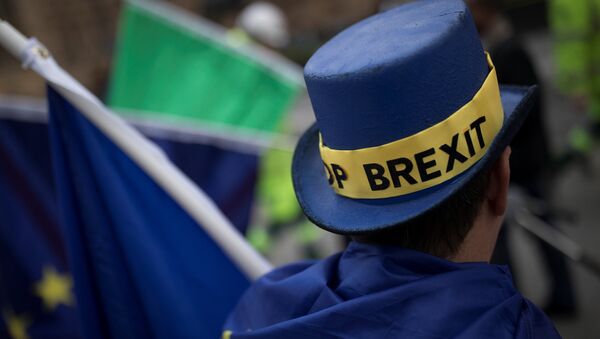Though no elected British minister or politician of the current crop would dare venture anything approaching an endorsement of Churchill’s dismal verdict of the ‘average voter’, lacking his candour and biting wit along with much else, it’s a fair bet that many are sympathetic to it – and never more so than now with the country at sea in a Brexit storm with no prospect of calm waters appearing anytime soon.
It goes without saying that democracy, any democracy, only succeeds to the degree that its supposed beneficiaries, the average voter, are informed with a sufficient grasp of the issues. Yet with responsibility for insuring that he or she is informed devolving to the political class itself, along with a Fourth Estate (mainstream media in today’s parlance) ably and honestly fulfilling its role as disseminator of facts rather than a conduit for the prejudices and political hobby horses of its very rich proprietors, we arrive at the myth of a free press across the West and within the UK in particular.
If any issue embodies the corrosive impact of the current state of media ownership in the UK it is Brexit. In the run-up to the EU referendum in June 2016 a veritable tsunami of half-truths, untruths, and obfuscation peddled by a Brexit-supporting media extended itself in ascribing the cause of British society’s ills to Brussels rather than a generation and more of free market Thatcherite economic nostrums, accompanied by an assault on the welfare state, NHS, public services, and the wages and conditions of the country’s working class.
READ MORE: Post-Brexit Blues: Changing Color of British Passport Highlights Social Divide
More recently, in the wake of the 2008 economic crash and resulting imposition of austerity, the callous disregard for the welfare of the most vulnerable in society spiked to the point where it became commonplace to blame their plight on them themselves, adding insult to very severe injury.
In other words, as part of an exercise in deflecting the underlying cause of the economic crisis – in précis private greed and an unregulated financial and banking sector – the political class and reactionary press successfully made the case that its cause was a crisis of public spending on the poor, thus setting this demographic up as a convenient scapegoat in the eyes of a wider public demanding answers and solutions.
In the years since this scapegoating has continued apace; only now, in service to Brexit, the guns have been turned on migrants, refugees, and by extension existing minority communities, depicted as a threat to that hoary old leitmotif of ‘British values’.
In parenthesis, just what are those values the British people are meant to hold so dear? Are we talking an empire that plumbed new depths of racism and brutality in its super-exploitation of large swathes of the developing world? Are we talking the propensity for unleashing war against poor countries, resulting in the slaughter of innocents? Or are we talking the callous cruelty towards the poor and vulnerable at home that has long been the shameful hallmark of a sociopathic ruling class?
It is no exaggeration to state that whenever a politician of the stature of Jean-Claude Juncker, President of the European Commission, pops up on your television screen your stomach automatically hits the floor. Verily, if mediocrity were an Olympic sport Mr Juncker would boast a string of gold medals, yet by dint of some grotesque bureaucratic trick, Mr Juncker finds himself endowed with the power to dictate chapter and verse to sovereign governments, which unlike him are accountable to electorates.
The cracks that have appeared in the foundations of the EU recent years, of which Brexit is the most serious, reflects the neoliberal economics it champions; the very same that have wreaked havoc in the lives of millions of ordinary working people on the back of the 2008 economic crash already touched upon. Neoliberalism is a corpse whose burial is long overdue. And whether in the context of the EU or Brexit Britain, until there is a fundamental break with this dead economic model political and social crises across Europe will continue to be the rule rather than the exception.
READ MORE: 'Smart' Brexit: German FM Outlines New Roadmap for Relations With Non-EU States
Despite the narrative to the contrary, Polish plumbers and Bulgarian bricklayers are not the enemy of working people in the UK. Migrant workers are not the cause of the crisis within the NHS, the housing crisis, or any of the other crises that working people in Britain are faced with.
Those are a product of the most draconian austerity programs of any advanced economy. Taking a wider view, the enemy of working people of all nationalities and cultures are global corporations with their ability to sow economic dislocation and foment a race to the bottom to the detriment of workers of all lands. And with this in mind, for all its manifest drawbacks the only political entity to stand up to global corporations in recent years has been the EU.
But for there to be a truly united Europe the inclusion of Russia and the exclusion of the US is non-negotiable; for it is the lack of the former and too much of the latter that is the true source of Europe’s problems in the second decade of the 21st century.
Thus reforming the EU on this basis instead of breaking it up on the basis of retrograde nationalism is the way ahead.
The views expressed in this article are solely those of the author and do not necessarily reflect the official position of Sputnik.
Check out John's Sputnik radio show, Hard Facts.







